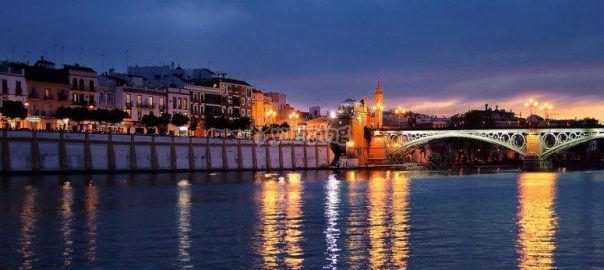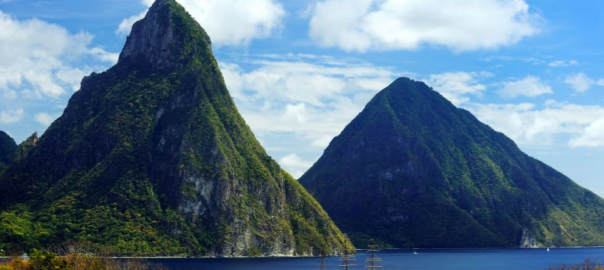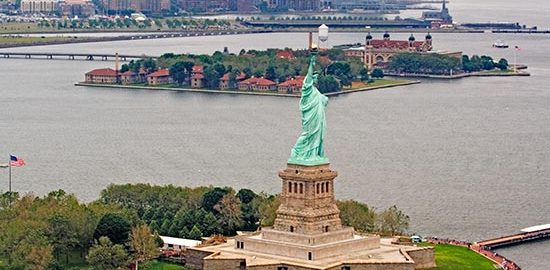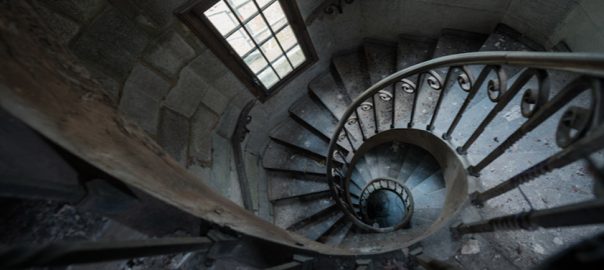Poetry: By Ann Schlotzhauer

Guadalquivir, by night
A thin man, bathed in unperturbed night,
Walks across a bridge
Spanning a river older than time
He has gray eyes
Like the sky
Over the ocean
After a storm has only just passed
And he walks, as I watch, hand in hand
With a boundless void in a bright sundress
And he smiles with his slightly crooked teeth
And his slightly too-large nose
As he tucks his arm around her so knowingly
And it pains me to watch but I cannot look away
As he is sucked in by the void
And I know in that instant that it is too late
But is the void to blame?
If it only wished to be near the people with the kind gray eyes
Is the void to blame?
If it warned him of the danger long before this moment
Is the void to blame?
He was thin, with gray eyes set in tanned smile lines
And his nose with that slight hook that he so hated
And the void so loved
And his teeth, once straight, just perfectly crooked
I set his face in my memory
I set it there to stay forever
To commemorate what happened
And now, because the tragedy has already passed,
I can pull my eyes from the bridge
And scanning the indolent river
My eyes alight on each pair of stars
That are commuters rushing home after a too-long day
Pasta Water and Music
You stand in the kitchen cooking
All the windows open
Pushing air from behind me toward you
As I watch you let the pasta boil over
Always the pasta boils over
And you let it
Like a ritual
And I breathe in the sweet air of springtime
But I wish I could smell you too
Over dogwood blossoms and pasta water
And there’s music playing
Because you can’t cook without music
I always forget music
When you’re away
I forget this simple pleasure
And believe I have to live my life in silence
Awaiting your return
I don’t know the song but it’s rhythmic
And interwoven now in the spring air that fights to enter our windows
And all I know
In this moment
Is contentment
I remember all the times before when such happy things hid from me
And all those harder, sharper memories
Make this new life even sweeter
I fill my lungs
To the roots
With this air and this moment
Hoping I can breathe deeply enough to infuse it in my bones
I want to be made of this moment
With pasta water on the stove
And spring air pushing music in to every corner
I want it to shield me from the darkness that I know will come again
Morning Tide
In the morning the tide comes in
And sweeps us away
And we let it
We let it carry us around the world
And back again when the sandwiches are ready
We bathe in the water that has touched all mankind
And returned lovingly to tell the tale
We are one with it all
Because it allows us to be
We are thankful
Guadalquivir, by afternoon
In the afternoons, when our classes were done
When we’d returned from the stone-faced university
And eaten a hearty lunch of fish we never could identify
When the sun became too hot to stay inside
Luring us, like long-lost lovers, to its rays
We’d walk along narrow sidewalks
Always pointed toward the water
Like birds with metal in our noses
Always pointed
We dodged past schoolchildren skipping home in uniform
And we talked so fast
Interweaving air with words
It’s a wonder our lungs kept up
And when almost to the water’s edge
We stopped
Because our trip needed something more
And we debated and argued and weighed pros and cons
But there were always only the two options
Churros con chocolate o helado
And once we’d decided
We’d rush to the nearest
The tingle of metal guiding us there
And we’d fill our hands with treats we’d done so little to earn
And then, finally, the river
Because there’s always been something about masses of water
Something about its slow, steady movement
That makes you believe your own life is marked by progress
That makes you believe worry is unnecessary
And all is as it should be
We’d sit in the shade of gently dancing willows
Then move to the sun then back when the sun offended
And our talking slowed and our breathing slowed
And in those afternoons that stretched longer than any others
All was as it should be
_______________
Ann Schlotzhauer is a Kansas City native currently residing in Wichita, Kansas with a small gray cat. She enjoys creative expression of all kinds and her fiction and poetry can be found in Junto, Foliate Oak, Cardinal Sins, and more. 







